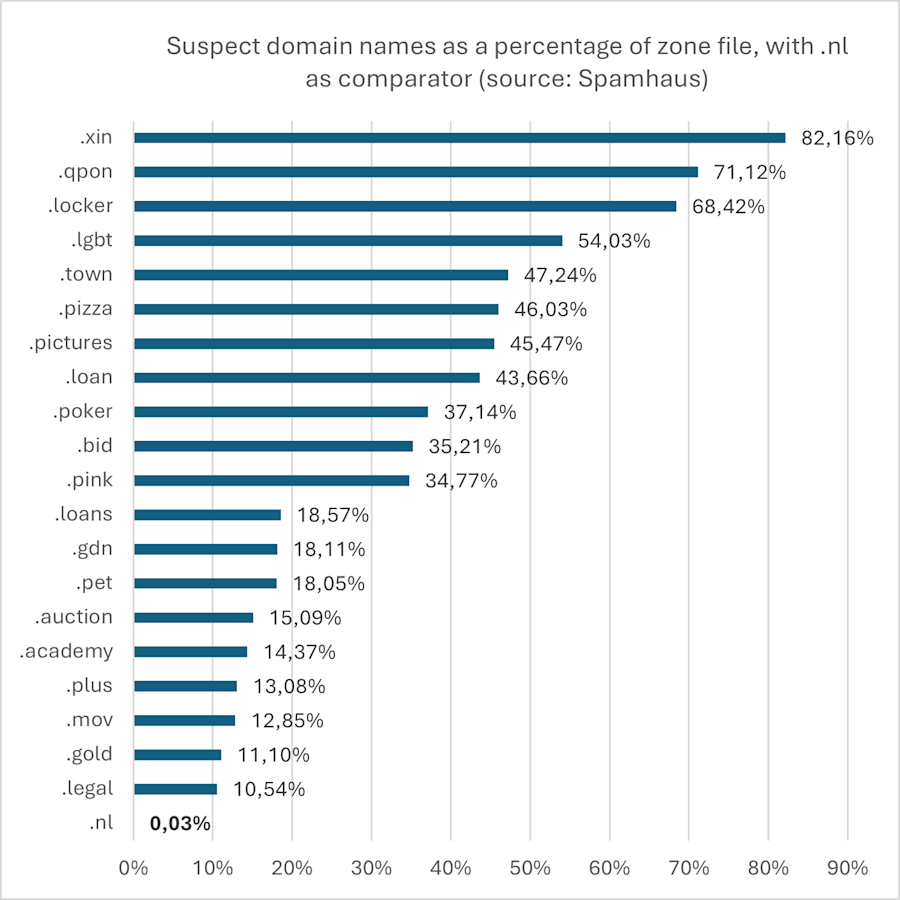Cheap domain names can end up costing a lot
‘Spammy’ top-level domains are best avoided when choosing a domain name
‘Spammy’ top-level domains are best avoided when choosing a domain name

Where the relationship between domain names and search rankings is concerned, Google can be rather mysterious. Sometimes the company asserts that the choice of domain name makes hardly any difference to a site’s ranking. Yet, every so often, insiders privately acknowledge that domain names do actually matter. Earlier this month, John Mueller, head of Google's Search Relations team, attracted a lot of attention on the social platform Reddit. Without naming names, Mueller said that it was best to avoid ‘spammy’ top-level domains (TLDs) when choosing a domain name.
Less trustworthy TLDs (what Mueller calls ‘iffy’ TLDs) are extensions that are often abused for spamming, phishing or malware. Most don’t verify registrants’ identities and offer domain names at basement prices, or even free of charge. As a result, they’re attractive both to cost-conscious registrants and to malicious actors. TLD rankings are published by various organisations, including Spamhaus and Interisle. And it’s best to avoid any TLD that often shows up in the rankings as less trustworthy. The rankings are dynamic, so it’s a good idea to check that you’re looking at an up-to-date list.

Figure 1: generic top-level domains with highest rates of malicious use with .nl as comparator (Source: Spamhaus 2025).
If you opt for a trustworthy TLD, does that assure you of a trustworthy domain name? Unfortunately not. Although you’re very unlikely to end up registering one, there are untrustworthy domain names, even in trustworthy TLDs such as .nl and .org. That can be the case if, for example, a name has been registered before and got hacked and abused for spamming, phishing or malware. A name like that may still be blocked by e-mail providers or distrusted by search engines. Meaning that the new registrant misses out on site traffic, customers and trade.
Does a TLD’s reputation affect users’ findability on Google? Mueller’s Reddit post suggests it does, although he gives no details. Generally speaking, search engine rankings take account of how often people follow the links in search results. If internet users are prevented by their spam filters or firewalls from reaching certain sites, or are reluctant to follow links to extensions they don’t trust, that will in any case affect the rankings of sites in question.
Before registering a domain name, it’s a good idea to do a reputation check. Tools such as Spamhaus and Google Safe Browsing can help you see whether a domain or TLD has a history of abuse. A poor reputation can lead to a lower search engine ranking, undelivered e-mail and visitor distrust. All of which will take a long time to fix.